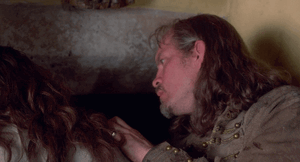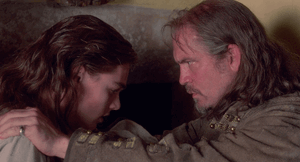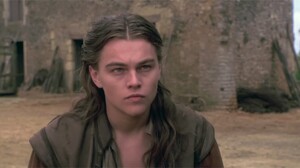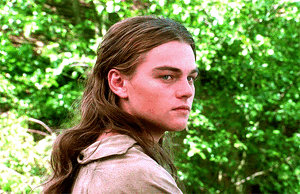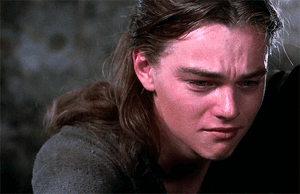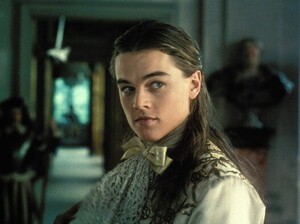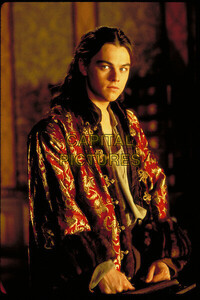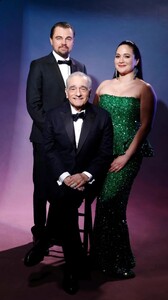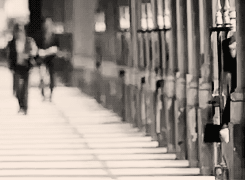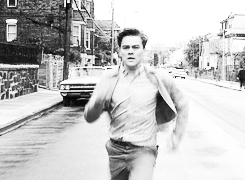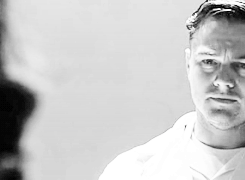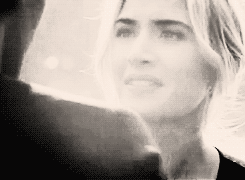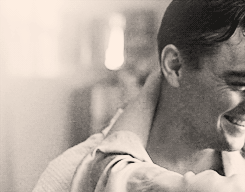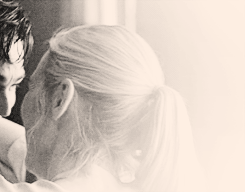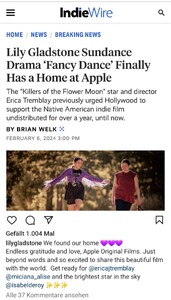
Everything posted by Jade Bahr
-
Aaron Taylor-Johnson
- Kate Winslet
- Kate Winslet
- Leonardo DiCaprio - (Please Read First Post Prior to Posting)
Still can't believe PTA wrote most of the script LOL Before Paul Thomas Anderson’s Rewrites, Lily Gladstone Just Had Three Scenes in ‘Killers of The Flower Moon’ We already know that there was a total script overhaul for “Killers of the Flower Moon.” Martin Scorsese and Leonardo DiCaprio decided that, instead of depicting the point of view of the FBI, they were going to focus on the story of the Osage nation. Lily Gladstone had stated that ‘Killers’ was a different movie than the one [Scorsese] walked in to make, almost entirely because of what the Osage community had to say about how it was being made and what was being portrayed. In an interview with the Los Angeles Times, Gladstone admitted that, despite signing on to the film, in the original draft of ‘Killers,’ she only had three scenes in the entire movie … When the “Killers of the Flower Moon” casting directors first contacted her for the film in 2019, Mollie had just three scenes in the screenplay. It was a Martin Scorsese movie, so it wasn’t as if she was going to pass. Gladstone, whose father is Blackfeet and Nez Perce, figured she’d try to land the role and then do what Native American actors too often have to do — try to influence and reshape the role to make it authentic and meaningful. In the rewrites, she has an hour of screentime — she’s now an Oscar nominee for Lead Actress. Gladstone might even win — it’s either her or Emma Stone. Eric Roth, who wrote the original ‘Killers’ screenplay, took a crack at the rewrites. However, at some point in the process, Paul Thomas Anderson was hired by Scorsese to take part in rewriting a good portion of the script. I’m actually surprised that this has not been reported yet by any of the trades.- Leonardo DiCaprio - (Please Read First Post Prior to Posting)
- Leonardo DiCaprio - (Please Read First Post Prior to Posting)
- Lily Gladstone
- Leonardo DiCaprio - (Please Read First Post Prior to Posting)
- Leonardo DiCaprio - (Please Read First Post Prior to Posting)
- Margot Robbie
- Rachel Zegler
- Ryan Gosling
Ryan Gosling on Nearly Turning Down Ken, Singing Live at the Oscars and Wanting a ‘Beach-Off’ Over Those ‘Barbie’ Snubs- Leonardo DiCaprio - (Please Read First Post Prior to Posting)
No one wants to replace Leo. They want a similiar successful long living varied career like him. Leo sets the golden standard every young actor is reaching for like no other actor in Hollywood after him. It's a fuckin compliment.- Leonardo DiCaprio - (Please Read First Post Prior to Posting)
It seems Leo appears in Edward Zwicks (Blood Diamond) memoir "shopping" some models between takes LMAO “I’ll be dropping a few names,” Ed Zwick confesses in the introduction to his book. “Over the years I have worked with self-proclaimed masters-of-the-universe, unheralded geniuses, hacks, sociopaths, savants, and saints.” Leonardo DiCaprio was ‘paging through Victoria’s Secret catalogue’ on set of Blood Diamond, director claims Filmmaker Edward Zwick recalled hilarious anecdote in which the star’s love life was gently ribbed by actor Jennifer Connelly Leonardo DiCaprio was found “paging through a Victoria’s Secret catalogue” on the set of Blood Diamond, his director has claimed in a new memoir. The funny anecdote was recalled by filmmaker Edward Zwick, who has written the story of his life in a new book titled Hits, Flops, and Other Illusions: My Fortysomething Years in Hollywood. Zwick is best known for directing films including the Tom Cruise hit The Last Samurai and Glory, which won Denzel Washington his first Oscar. Shared in a photo of the book taken by film critic Bilge Ebiri on Twitter/X, Zwick mentioned his DiCaprio memory while recalling the making of Blood Diamond, his 2006 thriller set during the Sierra Leone civil war. Zwick heaped praise on the “terrific” DiCaprio and his two co-stars, Jennifer Connelly and Djimon Hounsou, and said he remembered “only one instance of even the mildest misbehaviour” between them, adding: “It’s more a testament to their camaraderie than anything else”. “It seems Leo was currently between gorgeous girlfriends,” Zwick wrote. “One morning I walked into the makeup trailer as I often did to discuss the day’s work with him. I found him in the chair waiting for his turn and noticed he was paging through a Victoria’s Secret catalogue. “‘What are you doing?’ I asked. [Connelly] was in the chair beside him. Without even looking over, she said, ‘Shopping’.” Zwick’s book Hits, Flops, and Other Illusions: My Fortysomething Years in Hollywood is released on 29 February.- Emily Blunt
- Austin Butler
- Leonardo DiCaprio - (Please Read First Post Prior to Posting)
Esquire about Austins try to be the first movie star since Leo - the last movie star so far. Just posting because it's always nice to see that Leo is still... well... the goal every young actor is reaching for.- Austin Butler
Esquire Feb 2024 They Don't Make Them Like Austin Butler Anymore- Florence Pugh
- Austin Butler
- Lily Gladstone
- Leonardo DiCaprio - (Please Read First Post Prior to Posting)
I dunno if this vid from CCAs was posted before but it's hella cute https://www.instagram.com/reel/C2YUEUqrkx5/- Leonardo DiCaprio - (Please Read First Post Prior to Posting)
They probably even use the same wig 😅- Alicia Vikander
Account
Navigation
Search
Configure browser push notifications
Chrome (Android)
- Tap the lock icon next to the address bar.
- Tap Permissions → Notifications.
- Adjust your preference.
Chrome (Desktop)
- Click the padlock icon in the address bar.
- Select Site settings.
- Find Notifications and adjust your preference.
Safari (iOS 16.4+)
- Ensure the site is installed via Add to Home Screen.
- Open Settings App → Notifications.
- Find your app name and adjust your preference.
Safari (macOS)
- Go to Safari → Preferences.
- Click the Websites tab.
- Select Notifications in the sidebar.
- Find this website and adjust your preference.
Edge (Android)
- Tap the lock icon next to the address bar.
- Tap Permissions.
- Find Notifications and adjust your preference.
Edge (Desktop)
- Click the padlock icon in the address bar.
- Click Permissions for this site.
- Find Notifications and adjust your preference.
Firefox (Android)
- Go to Settings → Site permissions.
- Tap Notifications.
- Find this site in the list and adjust your preference.
Firefox (Desktop)
- Open Firefox Settings.
- Search for Notifications.
- Find this site in the list and adjust your preference.
- Kate Winslet

